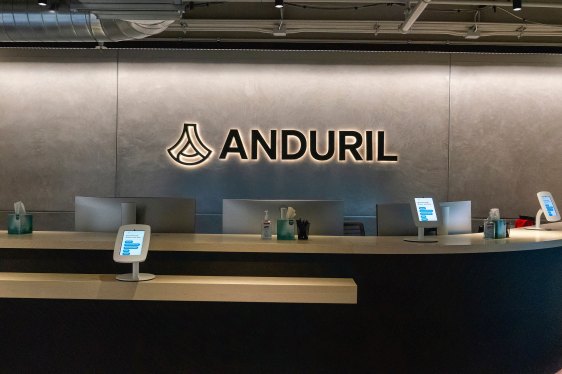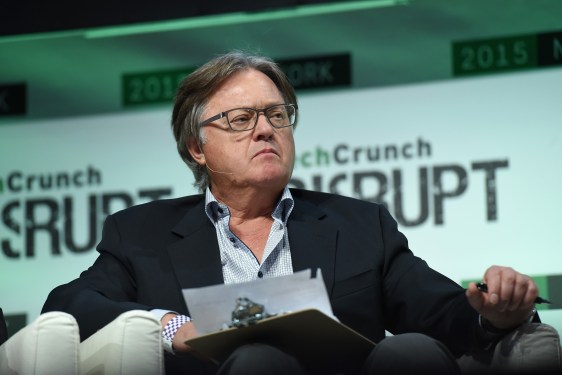American drone manufacturer Skydio has raised an extension round of $170 million, adding to the $230 million Series E it closed early last year.
The new tranche of funding brings in strategic investors like Japanese telecom operator KDDI and Axon, the creator of the taser and other police tech. It also includes previous investors, like Linse Capital, which owns more than 21% of the drone maker.
The new funding comes at a time when defense tech funding is booming, with deals in the sector receiving over $9.1 billion in the first half of 2024, according to PitchBook.
“Frankly, no-brainer for us to invest in,” said Linse Capital managing director Bastiaan Janmaat. “Because we’re getting in at the same valuation, even though the business has doubled.”
TechCrunch viewed a pitch deck prepared this summer by Linse Capital for a potential Series F round, which showed the investor eyeing a $200 million to $300 million raise at the Series E’s $2.2 billion valuation. Janmaat told TechCrunch that Skydio opted instead to do an extension of the Series E. “We were of the opinion, ‘hey, go raise a big Series F now,’ and that’s what we initially pitched our LPs,” Janmaat said. “But, you know, we can’t make Skydio do that.”
Janmaat said the extension round was kickstarted by KDDI’s interest. KDDI ultimately invested about $60 million into Skydio and plans to place drones at 1,000 places throughout Japan, as well as helping Skydio with LTE connectivity for the drones there.
The Linse pitch deck also shows how Skydio is trying to diversify its revenue and reach profitability. Last year, the startup had over $100 million in annual revenue, the presentation shows. Thirty percent of that came from software. Skydio also reported a 38.1% gross margin in 2023, “driven by favorable mix shift towards software revenue and economies of scale in production costs,” according to the deck.
The company has gained significant traction with enterprise and public safety customers, especially since it officially sunset its consumer drone product in 2023. In 2024, Linse Capital projected Skydio would generate around $180 million in revenue despite the shift, according to the deck.
Things are also looking up for Skydio’s military ambitions: Of the $1.2 billion bookings in the pipeline, over 50% was ordered by defense customers.
In addition to winning contracts with law enforcement agencies across the country, Skydio has had help from one its investors: Earlier this month, TechCrunch reported that Andreessen Horowitz partner Ben Horowitz, who invested in Skydio, donated money to help the Las Vegas Police Department purchase Skydio drones. The approach, which allowed Skydio to bypass typical procurement and bidding processes, raised red flags with advocacy groups.
But Janmaat told TechCrunch he believes donating police tech is a smart approach, assuming the technology is worthy of police use.
“At the end of the day, these police departments, they’re not getting crappy technologies shoved down their throat,” he said. “They’re getting incredible technology at their fingertips sooner than they might otherwise.”
Even with the massive extension round and landing law enforcement contracts, Skydio, like many hardware startups, is set to spend lots of capital quickly.
The pitch deck details how Skydio has predicted it would burn through $238 million by 2029. Linse Capital, meanwhile, modeled the spending at about $350 million in the same time period. Janmaat told TechCrunch that Linse has encouraged Skydio to “be aggressive,” and burn through more capital by adding more products faster, given the lack of competition in North America. A Skydio representative said these burn rates are not in any of the company’s own pitch decks and that the startup cannot validate them.
But the figures Linse prepared ultimately present a more bearish look at the next five years than Skydio’s own projections. “That’s our job as investors, to be a bit more conservative,” Janmaat said.
Skydio’s future is very much still dependent on hardware releases, as well as convincing law enforcement and utility companies to purchase Skydio drones over competitors like Brinc and Chinese drone manufacturer DJI.
Increased scrutiny over Chinese drones at the state and federal levels could provide “tailwinds,” according to the pitch deck, helping Skydio increase domestic sales. But Skydio also faces that problem in reverse: Just last month, China sanctioned Skydio for selling drones to Taiwan, which has affected the drone-maker’s battery supply.
Does Janmaat think that was really just because they were working with Taiwan, or punishment for lobbying against DJI?
“Oh, it’s both,” he said.








